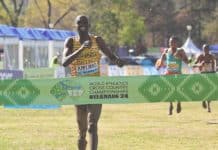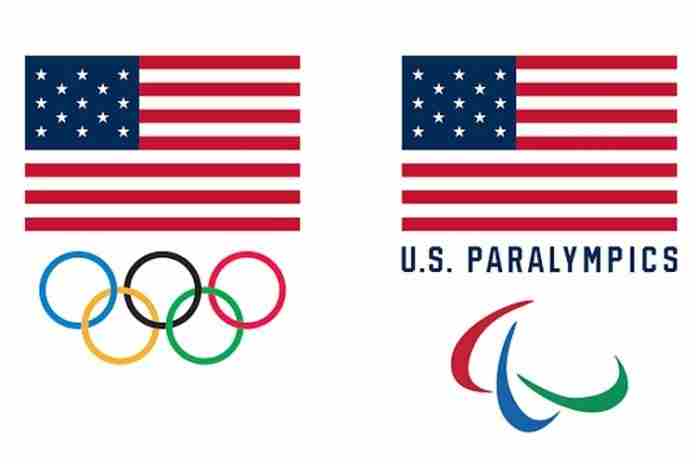The latest news, notes and quotes from the worldwide Five-Ring Circus:
“I think the decision about the Games themselves does not lie directly with us. It lies with a combination of the World Health Organization, the Japanese government and the IOC. But I can assure you that there is no circumstance where the USOPC would send our athletes into harm’s way if we did not believe it was safe.”
That’s the view from Susanne Lyons, the Chair of the United States Olympic and Paralympic Committee, on the situation with the Tokyo 2020 Games. During a teleconference on Friday morning, she explained further the current stance of the USOPC Board, which just completed meetings in Colorado Springs:
“We have expressed all the concerns and challenges that they [the International Olympic Committee] are obviously very well aware of, that we and the rest of the world are facing. I think we would concur with them to say we need more expert advice and information than we have today, to make a decision and we don’t have to make a decision.
“Our Games are not next week or two weeks from now, they are four months from now and I think a lot may change in that time period, so we are affording the IOC the opportunity to gather that information and expert advice and at this point in time, we do not feel it is necessary for us to insist that they make a decision.”
Lyons and Chief Executive Officer Sarah Hirshland reviewed the situation – and confusion – regarding the Games due to the worldwide spread of COVID-19. Said Hirshland:
“We’ll rely on the advice of public health professionals to determine when an environment and what a safe environment looks like.
“But at this point, we feel like we can continue to put ourselves in a position to be prepared should there be a Games in Tokyo. We are continuing to take the actions that we would need to take in order to be ready, and we have not had to make any significant decisions to alter that path at this point. Clearly, that will evolve, over the course of time, but our priority, and frankly, we view it as our obligation to the athletes we serve, is to be ready if there is an opportunity for them, we’re not going to be the reason they don’t have that opportunity. We will be there and we will be ready.”
Asked about the view of athletes – current and former – on the USOPC Board and those who have communicated with the USOPC and the National Governing Bodies, both make it clear that there are a “diversity” of opinions. Some want cancellation or postponement, but Hirshland also noted:
“There are athletes for whom they view this as their only chance and their last chance, and so the ambiguity is what makes it so difficult and certainly we’ll all living with a pretty high degree of uncertainty and a lack of clarity right now and we absolutely hope that we can have clarity as soon as that’s practical.”
The USOPC has ramped up the availability of mental-health support for athletes and has arranged for meal service for those athletes who are resident at its Olympic Training Centers in Lake Placid, New York and Colorado Springs, Colorado, even though those facilities are otherwise closed.
But on today’s issue of training availability and a fair selection process for Tokyo – if it happens – Hirshland indicated that issue is well recognized:
“We’re also asking athletes, if it is available to them, in a safe environment, and in an appropriate environment, based on local health official guidance , to continue to do what they can, to prepare themselves for competition. We know that the training schedules of many of our athletes have been significantly disrupted, and as we are having to be creative and nimble and adapting our lives, we’re asking athletes to do the same, but to put their safety first and foremost.
“You also heard Susanne talk a bit about the right to compete and team selection. Many of you have seen stories or heard stories of concern about the qualification process. The disruptions to qualifications for the Games has been significant and likely will continue to be significant. Our teams are working very hard with our partner National Governing Body and the athlete representatives from those sports to determine how to adapt team selection criteria, so that we are prepared for a variety of potential outcomes. It’s very important to us, and one of the fundamental principles of our organization is athlete’s right to compete, and a fair process by which they have the ability to do that, and we’re incredibly focused on ensuring that we protect those rights, and that we protect that process as much as possible.”
But nothing is for certain. Hirshland said that the USOPC is working with the idea that the Games will happen, but with no assurance:
“It is our hope that our athletes have the ability to achieve their dreams in some capacity. Certainly, we are focused on Tokyo 2020 and will continue to be as long as that possibility stays ahead of us. We’ll do everything we can not to give up on our athletes and to make sure we’re here doing everything we can to support them and their preparations for their opportunity to compete at the Olympic or Paralympic Games.”
As Lyons noted, however, it’s not up to them.




















